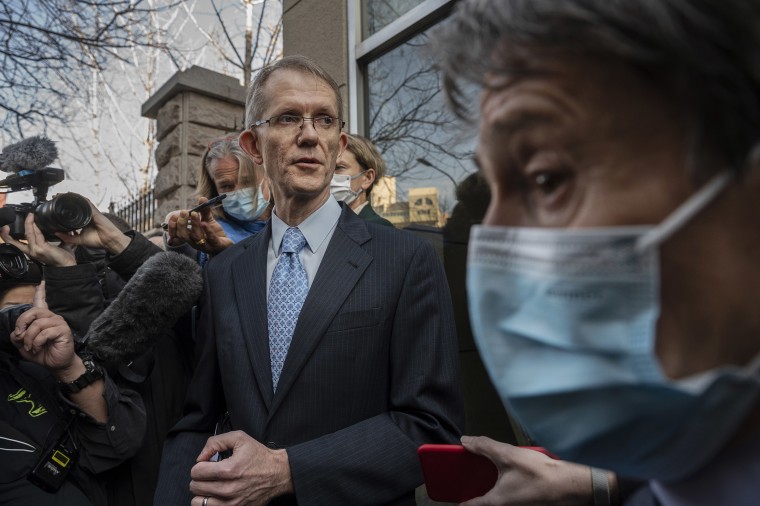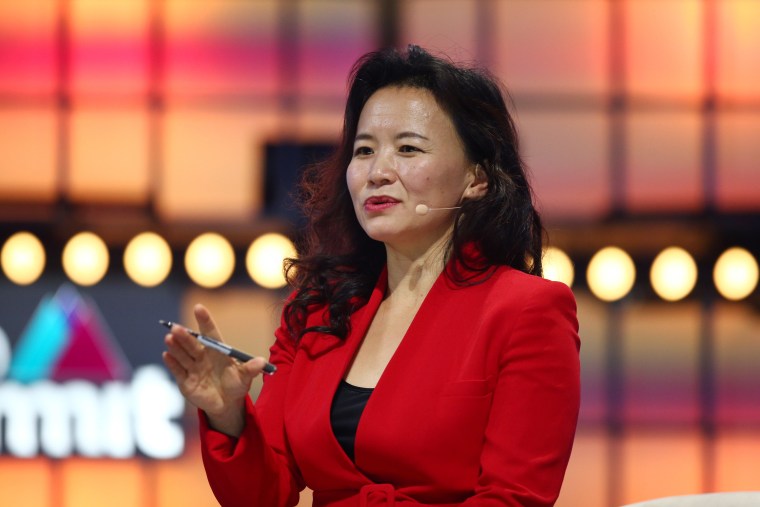BEIJING — Australian journalist Cheng Lei went on trial behind closed doors in a heavily guarded Beijing court on Thursday on charges of providing state secrets to a foreign country, more than 19 months after she was detained.
Cheng, 46, was a television anchor for Chinese state broadcaster CGTN before being detained in August 2020. She was formally arrested a year ago on suspicion of illegally supplying state secrets overseas.
Cheng’s family members have said they are convinced she is innocent.
Download the NBC News app for breaking news and politics
A heavy contingent of uniformed police and plainclothes security personnel were positioned outside the No. 2 People’s Intermediate Court where Cheng was to be tried. Police, who had taped off areas close to the north entrance of the court, checked journalists’ IDs and asked them to move away.
Australian Ambassador Graham Fletcher was barred from entering the court.
“In this case, the defendant is suspected of the crime of illegally providing state secrets to a foreign country, which is a case involving state secrets and is not handled openly, so is not open to visitors,” a court official told him.
Fletcher told reporters that he was concerned because Australia had no information about the charges Cheng faces and cannot understand why she was being detained.

“This is deeply concerning, unsatisfactory and regrettable,” he said of being excluded from court.
“We can have no confidence in the validity of a process which is conducted in secret,” he told journalists before leaving.
Australian diplomats have had regular visits with Cheng, most recently on March 21. “Considering the circumstances, she’s doing OK,” Fletcher said.
In a statement on Cheng’s case on Thursday, the Australian Foreign Ministry said that while it respected the sovereignty of China’s legal system, “the continuing lack of transparency is concerning and further undermines confidence.”
Cheng has had no contact with her two young children since she was detained, it added.
China’s courts have a conviction rate of well over 99 percent, according to calculations by China Justice Observer, a local web portal.
It was not clear when a verdict would be handed down.
“Her two children and elderly parents miss her immensely and sincerely hope to reunite with her as soon as possible,” Cheng’s family said in a statement provided to Reuters.
At a regular news conference this week, a Chinese foreign ministry spokesman did not directly respond to a Reuters query on whether Australian officials would be permitted to attend, but did say that Cheng’s rights would be fully guaranteed.
Last May, in a separate case at the same court, Australia’s ambassador to China was denied entry to the trial of Australian blogger Yang Hengjun, who was accused of espionage. In a trial last March of former Canadian diplomat Michael Kovrig in the same court, Canadian officials were denied entry.
Cheng was born in China and moved with her parents to Australia as a child. Later she returned to China where she built a television career first with CNBC, starting in 2003, and later, starting in 2012, as a prominent business news anchor for China’s English-language CGTN.
The trial comes as diplomatic relations between Australia and China remain tense, after Canberra urged an international investigation into the source of the Covid-19 pandemic in 2020 and Beijing responded with trade reprisals.
